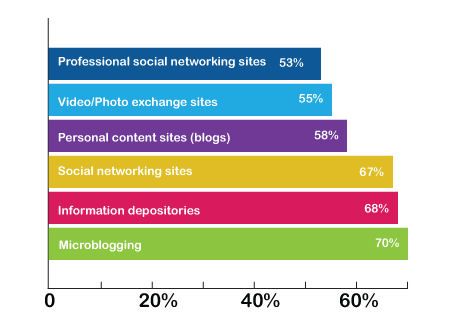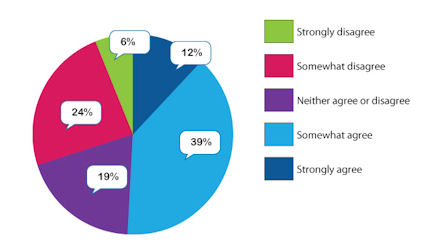According to Cision’s latest annual survey of journalists on their uses and perceptions of social media, there has been a considerable rise in the amount journalists use social networks. Paul Miller, head of digital at Cision, discusses some key findings from the study, carried out in conjunction with Canterbury Christ Church University:
“As Twitter and Facebook appear regularly as sources across all types of media, it is not surprising that social media is now used regularly by 97 per cent of those surveyed, as opposed to 74 per cent last year. Twitter is the key social platform used by UK journalists, as opposed to their European counterparts who use Wikipedia most heavily.
“Maybe more surprising, is how resilient the traditional forms of communication between journalists and their sources, mainly PROs, has remained pretty much unchanged – with press releases and face-to-face meetings still firmly on the landscape.”
Miller says that it is interesting to note how the increase in use of social networks may be affecting the quality of journalism: “Most journalists cautiously agreed that social media encourages opinion-orientated journalism – 17 per cent strongly agreed and 69 per cent somewhat agreed. Opinions also varied about whether social media encourages ‘soft’ news as opposed to ‘hard’ news, although journalists were more likely to agree than disagree. Interestingly, there was a notable difference on this issue between journalists in large organisations (44 per cent agreed) and freelance journalists (57 per cent agreed).
For your work, what social media tools do you use in a typical week?

“So there is some concern about how social media can affect the quality of the journalism, and the recent riots in the UK illustrated how misinformation can be a major issue – especially when there is a big, fast-moving story. It will be interesting to see how this impacts on our findings in 2012.”
The survey showed, that in particular, social media platforms are very popular with radio journalists. Miller offers some statistics: “Radio itself is holding up incredibly well these days, with a staggering 91.7 per cent of the UK population tuning in every week (according to RAJAR) and radio journalists are the heaviest users of social media sites compared to their colleagues in newspapers and magazines, and they even use it more than social media journalists! It would seem that audience Tweets have taken up a regular place alongside, or even in place of, the traditional phone-ins and more recent texts.”
Social media encourages a focus on 'soft' news as opposed to 'hard' news

In conclusion, Miller says that social media is clearly being used as an additional resource for journalists rather than it replacing any other communication options. He adds: “It is being used alongside, not instead of, the range of well-established practices from search engines to drinks with PROs (no surprise there then!).”
Methodology
Cision Europe and Canterbury Christ Church University conducted a survey about the uses and perceptions of social media among journalists in four European countries: UK, Germany, Sweden and Finland. The total number of completed surveys across all four countries is 1,560 with the following country distribution: UK (667); Germany (189); Finland (448) and Sweden (256). Overall, the response rate was 5.3 per cent. The statistical analysis, based on a 95 per cent confidence interval, examined the differences and similarities between sub-populations of respondents. Respondents were taken from Cision’s media database of more than 1.5 million influencers globally. A detailed summary of the UK results is here.
PR Masterclass: The Intersection of PR and GEO
Wednesday 25th February, both virtual and in person tickets are available.
PR MasterclassIf you enjoyed this article, sign up for free to our twice weekly editorial alert.
We have six email alerts in total - covering ESG, internal comms, PR jobs and events. Enter your email address below to find out more:





